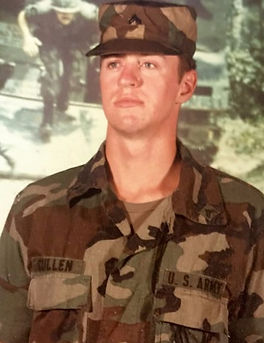Bestselling Author
Gay Soldiers
The tumultuous story of two active duty gay soldiers fighting for love and happiness against all odds. The decorated combat arms officers served in three wars and deployed to five continents, before, during and after Don't Ask Don't Tell, forging a solid friendship navigating the policy, often hiding in plain sight.
Born on the eve of Stonewall, their lives tell the story of the liberation of our military and the entire LGBT equality movement, through their insightful eyes.
The "compromise" was designed to loosen their shackles, but Don't Fall in Love draws back the curtain on how it made life so much worse--forcing brutal compromises and pitting their life's calling against happiness with the men they loved.

Don't Fall in love
The Secret Lives of Two Gay Soldiers Hiding in Plain Sight
fall 2026
GLAAD Media Award
summary
Brett served the army in three wars: Iraq, Afghanistan and the Gulf War. Drake deployed to Iraq and Afghanistan, plus hotspots in Kuwait City, Cairo, Caracas, Port-au-Prince, and Dongducheon, Korea. They each have led extraordinary careers on the front lines of thirty years of U.S. military intervention. Both played significant roles at Guantanamo Bay, a decade apart. This sprawling story will take you inside remote foreign lands, grubby army towns, and senior Pentagon meetings, seen through the eyes of these two soldiers and a string of boyfriends, locked in a struggle with an invisible foe.
My two protagonists served on army active duty before, during and after Don't Ask, Don't Tell, and through the nation's full evolution on gay marriage, from zero to 50 legal states (after DOMA ended). Their perceptions of what they were up against changed drastically over two decades. I take you inside their world, as it evolved: believing they were ordinary army soldiers, and then the curve ball that hit them and slowly transformed their careers. Their lives weave in and out of experience with lesbians, enlisteds and sailors, airmen and Marines, but I do not attempt to document the policy's impact on every gay community. This is an intimate story of two fascinating army soldiers — and the men, and occasionally women, they loved.
Drake and Brett bring you remarkably different perspectives. Drake is a gruff, brash good ole’ boy, with a hulking linebacker body and a wicked sense of humor, wielded in a fading Tennessee twang. Brett is a short, muscular Korean with a massive barrel chest and bubbly disposition, fond of chatting up truck drivers and clerical staff alike, and amusing them with bad puns. Brett immigrated as an infant, and as he grew up he helped raise his younger siblings, while his parents ran a deli in Queens and import shop in the Bronx. West Point turned his head around, taught him how much he had to overcome as an Asian soldier, unaware he had much bigger hurdles ahead. Battle can affect a soldier many different ways, but in Drake's case, decades of internal struggle in and out of a slew of war zones mellowed his disposition and taught him new concepts of what it means to lead.
Origin Story
This book has two protagonists, who I met in January 2000, in a gay bar in Colorado Springs. They were army captains, in hiding, but felt safe inside. I have been following them ever since, observing one stunning twist after another in their love lives and army careers, at close range. I’ve never had an opportunity like this as a journalist, and I hope it brings a sense of intimacy to to the book. I have gotten to know them well, and they have been incredibly candid. (It took Brett’s Asian mom 15 years to open up all the way.)
I met them at the height of Don’t Ask, Don’t Tell, researching a policy piece for Salon. I had been a gay soldier before the policy, but wanted the perspective of someone serving.
I spent five months on an 11,000-word ethnographic story than ran in two parts in June 2000. For complicated reasons I explored in the piece, the policy paradoxically encouraged gay sportsex, but made a meaningful relationship nearly impossible. What all the guys craved, and the policy denied them, was a boyfriend. So we called the piece, “Don’t Ask, Don’t Tell, Don’t Fall in Love.” I still wince typing that 17 years later. Part 2 was "A Heartbreaking Decision." They won the GLAAD Media Award for best online story of 2000.
Be Notified
To be notified when it's available
for pre-order and published:
Email 'NOTIFY' in the subject line to dave@davecullen.com
I never share addresses, and won't spam you.










